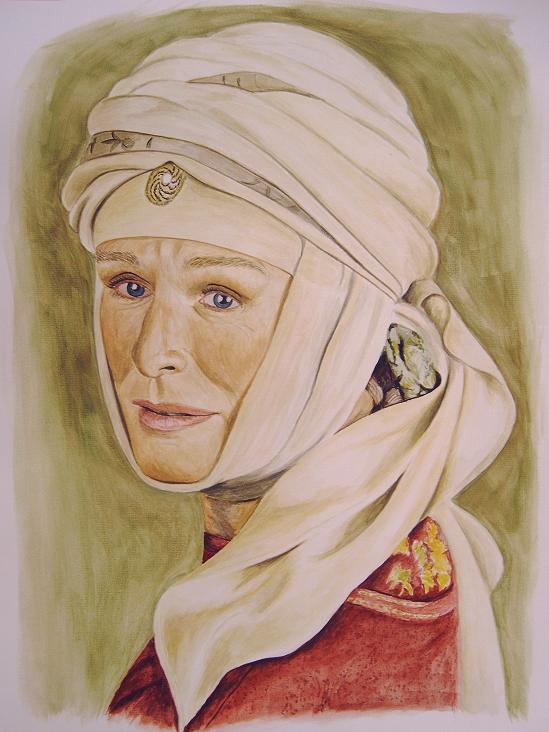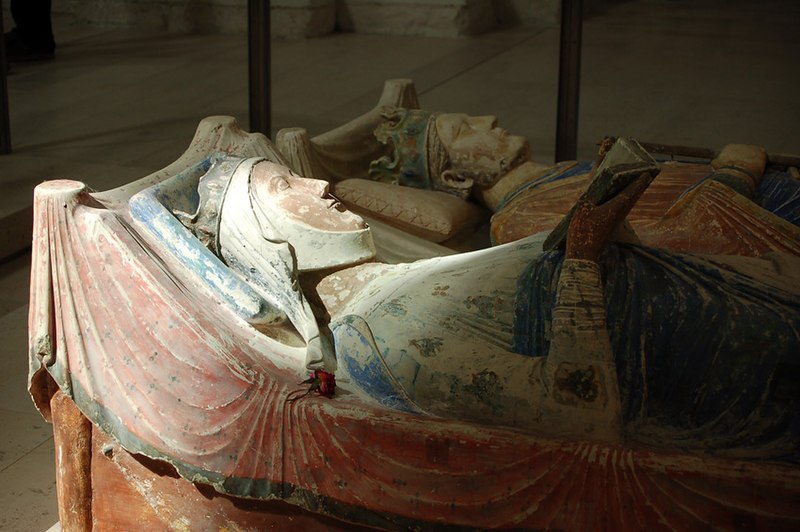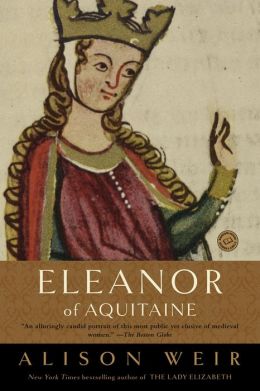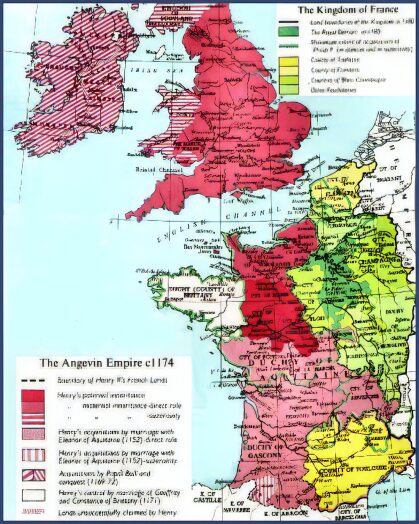Eleanor's biography sounds like the story line of a prime time soap. As a teenager she married a cousin. After more than a decade of marriage and a couple of children, the marriage was annulled on the basis that they were cousins. Almost immediately she married another cousin. Her first husband's daughfer by his second wife married Eleanor's son by her second husband. The engagement of another of her first husband's daughters to another of Eleanor's sons never resulted in their marriage because Eleanor's husband took the girl as his mistress. Eventually her second husband also sought an annulment of their marriage on the grounds that they were cousins and because she had been his father's mistress, but the annulment was not granted. So he locker her up and put her under guard until he died. And that is only part of the story.
I have just read Eleanor of Aquitaine: A Life by Alison Weir. The 12th century has been called the High Middle Ages, a time of transition between the Dark Ages and the Renaissance. In order to understand the book, I did some background research which I have described in two previous posts. (Preparing to read about Eleanor of Aquitaine, Further preparation for reading about Eleanor of Aquitaine) I have also posted a couple of other times on the book. (Royals in the 12th Century Were Terrible People, Eleanor of Aquitaine: Secular and Ecclesiastical Power in the High Middle Ages)
Eleanor of Aquitaine lived a long and eventful life (1122 or 1124 to 1204). She was the eldest child and heir of a man who simultaneously held the titles of Count of Poitou and Duke of Aquitaine and Gascony. He died in 1137, leaving no male heir. Thus, as a teenager Eleanor inherited a swath of what is now France, becoming the richest and most powerful single woman in Europe. Her father had made the King of France, his overlord, her guardian. The king promptly married her to his son, who soon became King Louis VII of France. Thus Eleanor as teenager became Queen of France, with her own rights to a significant inheritance. In 1152, after bearing two daughters, the marriage was annulled.
 |
| Glenn Close as Eleanor |
Her sons when they became adults rebelled against their father and Eleanor supported her sons. When Henry II put down the rebellion he imprisoned Eleanor (1173-1189). Ultimately she was restored as his Queen and consort, and after Henry died she assisted Richard and John in running their kingdoms.
She is known to have participated in the second Crusade, living in Jerusalem for almost a year. When Richard was embarked on the third Crusade she accompanied his intended bride from Spain to Sicily and back to Normandy. She ended her life as a nun. All this is described in all the detail I really needed in the Wikipedia entry for Eleanor.
Something seems to be lost in the book. The author does not, but we can infer how nervous a teenage girl must have felt moving to a new land and marrying shortly after the death of her father. So too we may wonder what a woman of 28 or 30 must have felt ending her first marriage and marrying a 19 year old boy. We can wonder how decades of travel and experience in governing matured Eleanor, or how her imprisonment and later time in a nunnery affected her mind and spirit. Clearly, the culture 100 years ago was very different than that of today, and few of us can imagine what it was like to be the most powerful woman in Europe, but there must be a common basis of humanity to help us empathize with Eleanor.
Since Eleanor's life took place more than 800 years ago, the documentation of her life that has survived is sparse. While Weir believes the reports that Eleanor was very beautiful as a young woman, but we have no real information on her appearance. Much of the book is based on the eventful and better documented lives of her husbands and sons. Still Alison Weir, in writing the book, has provided many references to contemporary or near contemporary accounts, weighing the credibility of alternative sources. She clearly has also read the modern historians. Her effort seems to have been to separate the more credible from the less credible accounts of Eleanor's life. In the process she rejects a lot.
While husband Henry and her sons may have had mistresses, queens were expected to assure that the children that they gave birth to were the legitimate heirs to their kings. Eleanor was thought to have been promiscuous, but Weir comes down on less rather than more promiscuity. On the other hand, it seems that the court of Aquitaine was more cultivated and artistic than those further north, in support of troubadours for example, and that Eleanor may have brought some of that cultivation to Paris and London.
I will not remember a great deal of this book. I spent a fair amount of time on other sources to discover more about the society of the 12th century, both because that interested me more and because I needed more background to properly understand the account of Eleanor's life.
Elizabeth Chadwick, another historian, writes of this book, "Several historical errors and opinions stated as fact. Read with a massive pinch of salt, but useful as an overview." She provides a list of alternative sources about Eleanor and her times.
Here is another, more positive review of the book.
 |
| Tomb effigies of Eleanor and Henry II at Fontevraud Abbey |


No comments:
Post a Comment